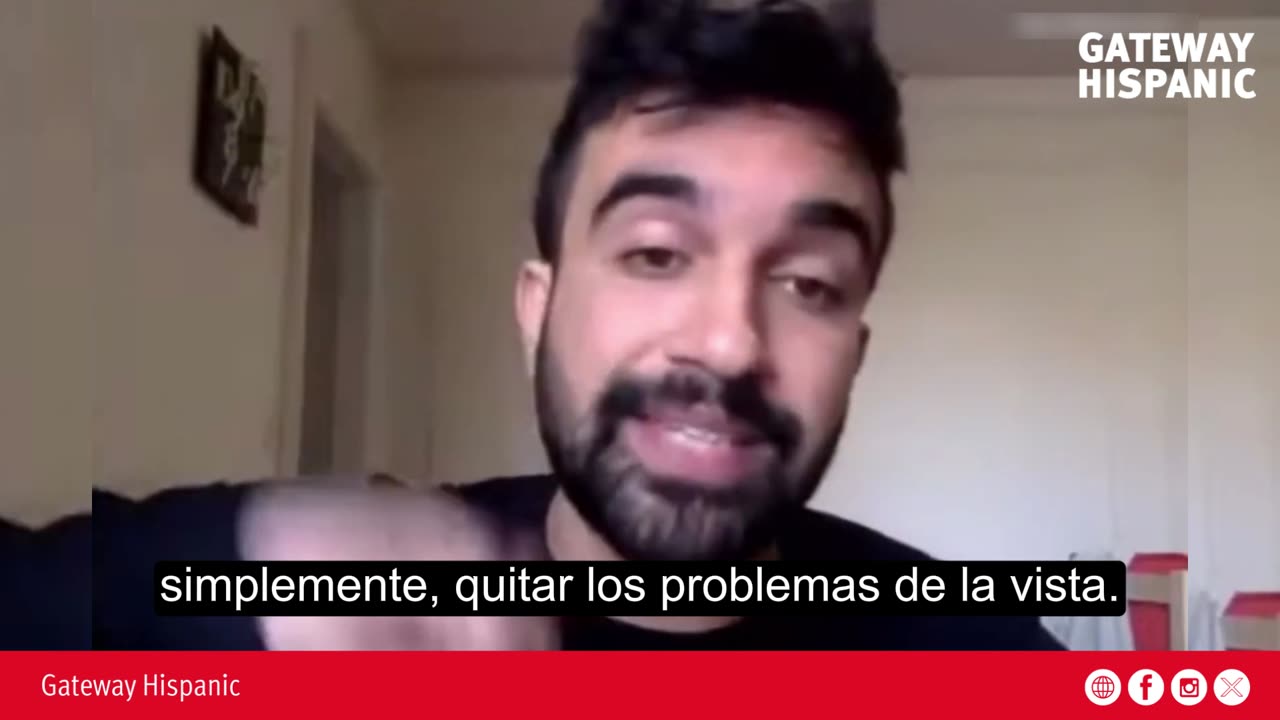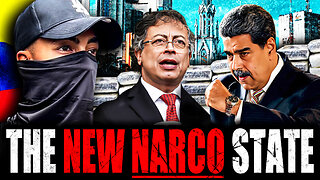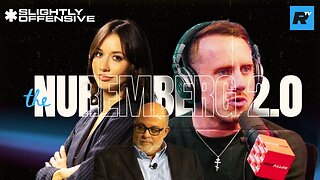Premium Only Content

Mamdani Pushes for a Prison Revolution in New York: Reform or Security Risk?
New York State Assemblyman and mayoral candidate Zohran Mamdani has, in recent months, reaffirmed a strong critique of the U.S. prison system. “The way prisons are organized […] doesn’t make us safer,” he recently stated, adding that society’s instinct is “to take the person, the source of the harm, lock them in a cage, and throw away the key.”
While some see his comments as a step toward restorative justice, in reality, they represent a serious threat to law, order, and public safety.
Mamdani is not alone in his urban campaign: he seeks to lead New York City with a radical prison reform program that includes drastically reducing the prison population, changing sentencing laws, and redefining the role of police and prisons in society. His statements reflect a broader effort to transform the criminal justice system — one that deeply concerns those who defend law, order, and citizen protection.
What He Said — and What It Means
In his remarks, Mamdani argued that:
The prison system “does not make us feel safer.”
Many people who cause harm were themselves victims of trauma.
The police system does not actually make communities safer but merely hides the problem from public view.
These claims rely on a narrative of reform and social transformation — but they carry real-world consequences that require scrutiny:
Minimizing individual responsibility. By attributing crime primarily to past trauma, the offender’s accountability toward the victim becomes blurred.
Undermining the role of prisons. If “locking people up doesn’t solve the problem,” what is the alternative? Reform without security leads to chaos.
Reframing police and prison functions. Suggesting that police and prisons merely “hide problems” opens the door to weakening their authority and effectiveness — leaving citizens less protected.
Political Context: Criminal Reform in New York
Mamdani is currently running for mayor of New York City, promoting a socialist-inspired agenda: free public transit, rent freezes, and — most notably — sweeping changes to the criminal justice system. His positions reportedly include eliminating minor charges, abolishing prisons or sharply reducing inmate numbers, and redirecting police budgets toward community programs.
This platform has triggered alarm among conservatives, law enforcement, and security advocates, who warn that such policies could severely weaken the city’s ability to combat crime. For example, a parole reform law supported by Mamdani has faced criticism for allowing a significant number of ex-offenders to reoffend without being reincarcerated.
A Republican Perspective: Security, Responsibility, and Order
From a Republican standpoint, Mamdani’s rhetoric raises four critical concerns:
Public safety at risk. Prisons exist to protect the public — not merely to contain “unfortunate individuals.” Weakening them endangers society’s stability.
Causes vs. consequences. While acknowledging that offenders may have suffered trauma, justice must prioritize safety over excuses.
Police and prisons as pillars of order. Liberal democracy depends on strong institutions. Undermining them ideologically weakens the state itself.
Personal accountability and victims’ rights. Reform must not come at the expense of justice for victims or proportional punishment for offenders.
Conclusion: Reform or Risk?
Zohran Mamdani represents a profound shift in the philosophy of criminal justice in New York — and potentially, a model for the national left. Yet his vision, while celebrated in progressive circles, poses a crucial question for Americans who value liberty, law, and security: Are we willing to experiment with the very system that keeps us safe?
The answer is clear: yes to responsible reform, but no to ideological experiments without safeguards. A free society cannot afford to undermine order in the name of compassion — especially when compassion itself requires justice and foresight.
Ultimately, the debate Mamdani sparks is not just local; it’s a defining test for an era in which public safety, personal responsibility, and the rule of law must not be left to chance. While he calls for “rethinking” prisons and policing, millions of Americans are left wondering:
Who will protect the families that still hope for peace, safety, and a future?
-
 51:25
51:25
The Connect: With Johnny Mitchell
7 hours agoInside The REAL Narco State: The Colombian Drug Cartels DOMINATING The Global Cocaine Trade
8.7K -

MattMorseTV
4 hours ago $0.20 earned🔴Saturday Night NEWS + DRAMA.🔴
87.4K31 -
 LIVE
LIVE
BlackDiamondGunsandGear
6 hours agoAfter Hours Armory / New Game Changing EDC Gear / Gunderware
133 watching -
 LIVE
LIVE
SpartakusLIVE
5 hours agoSaturday SPARTOONS || WZ to Start - REDSEC or ARC Later???
245 watching -
 19:23
19:23
Clintonjaws
22 hours ago $0.03 earnedKaroline Leavitt STOPS Trump's Meeting & Grills Reporters Leaving Them Speechless
12K13 -
 LIVE
LIVE
DLDAfterDark
2 hours agoYou Keep a GUN Inside Your Draws?? Let's Talk About Your Tactical Undies
87 watching -
 7:02:59
7:02:59
DeadMomAlive
6 hours agoFace Paint Satur-SLAY! Fall Pumpkin! #BIRTHDAYMONTH
1.18K -
 2:10:24
2:10:24
RiftTV
6 hours agoThe Death Rattle Of Con Inc BEGINS | SLIGHTLY OFFENSIVE
27.5K3 -
 3:04:43
3:04:43
Mally_Mouse
11 hours ago🌶️ 🥵Spicy BITE Saturday!! 🥵🌶️- Let's Play: Shift Happens
65.3K1 -
 LIVE
LIVE
TinyPandaface
1 day agoYour FACE is a Gaming Channel! | Homebody - Part 4
40 watching